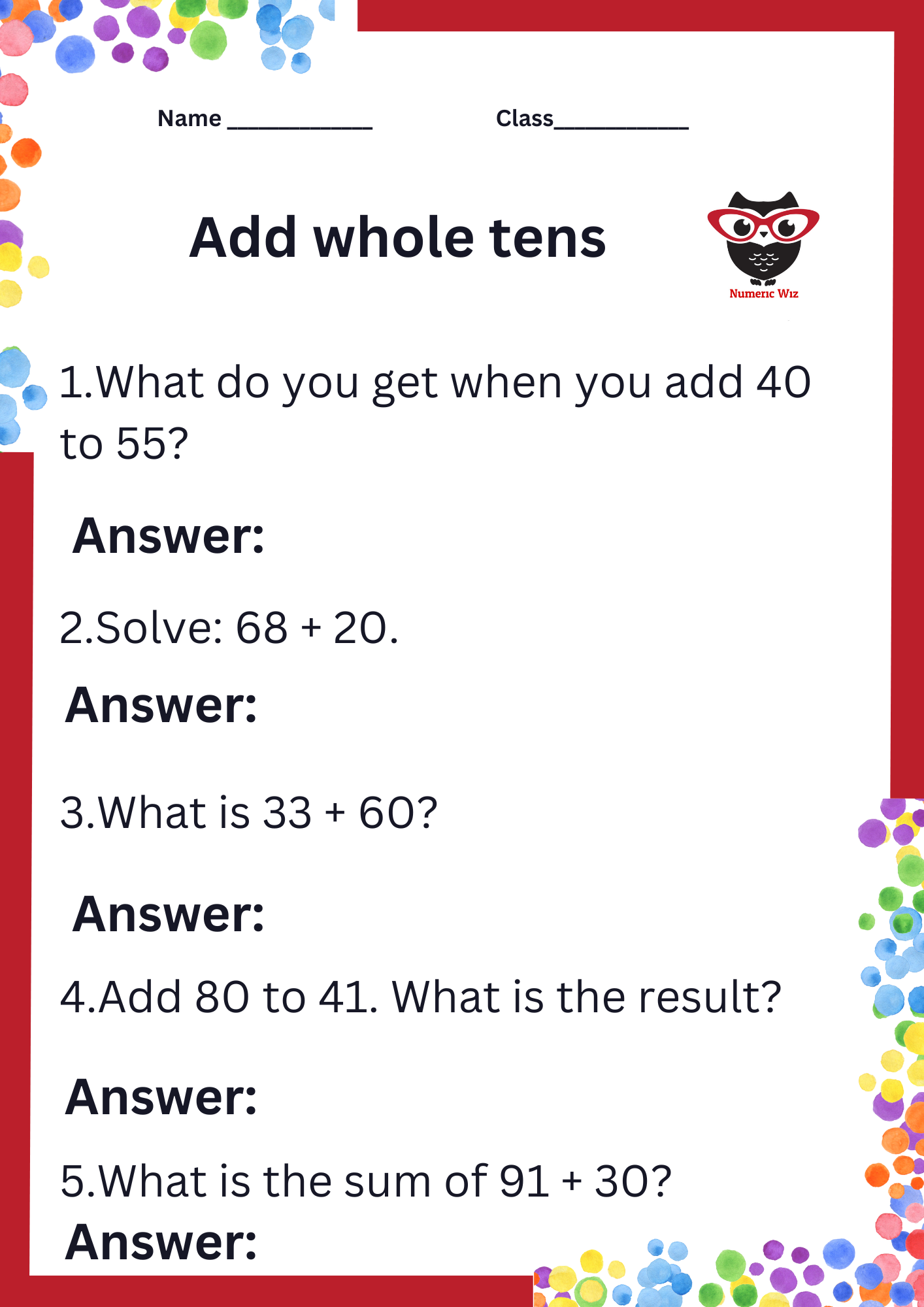Addition with Whole Numbers:
Addition is a fundamental arithmetic operation where two or more numbers (called addends) are combined to form a sum. In whole-number addition, you add numbers without fractions or decimals. Whole numbers include all positive integers and zero (e.g., 0, 1, 2, 3,...).
The key to addition is understanding place values, where numbers are organized into units, tens, hundreds, etc. When the sum of digits in a particular place exceeds 9, regrouping (or carrying) may be necessary.
Step-by-step Process for Adding Whole Numbers:
- Write the numbers vertically, aligning them by place value (ones, tens, hundreds, etc.).
- Start adding from the right (the one's place) and move left to the higher place values.
- If the sum of any column is greater than 9, regroup by carrying over to the next place value.
Example 1:
Simple Addition with No Regrouping 432 and 156.
Solution:
- Write the numbers aligned by place value: 432+156
- Start adding from the one's place:
- 2 + 6 = 8. Write 8 in one place.
- Move to the tens place:
- 3 + 5 = 8. Write 8 in the tens place.
- Move to the hundreds place:
- 4 + 1 = 5. Write 5 in the hundreds place.
Final Solution: 432 + 156 = 588.
Example 2:
Addition with Regrouping (Carrying Over), Add 287 and 495.
Solution:
- Write the numbers aligned by place value: 287 + 495
- Start adding from the one place:
- 7 + 5 = 12. Write 2 in the ones place and carry over 1 to the tens place.
- Move to the tens place:
- 8 + 9 = 17, and add the carry-over 1: 18. Write 8 in the tens place and carry over 1 to the hundreds place.
- Move to the hundreds place:
- 2 + 4 = 6, and add the carry-over 1: 7.
Final solution: 287 + 495 = 782.
Example 3:
Adding Three Whole Numbers: 245, 378, and 116.
Solution:
- Write the numbers aligned by place value: 245 + 378 + 116
- Start adding from the one place:
- 5 + 8 = 13, and 13 + 6 = 19. Write 9 in the ones place and carry over 1 to the tens place.

- Move to the tens place:
- 4 + 7 = 11, and 11 + 1 = 12, then add the carry-over 1: 13. Write 3 in the tens place and carry over 1 to the hundreds place.
- Move to the hundreds place:
- 2 + 3 = 5, and 5 + 1 = 6, then add the carry-over 1: 7.
Final solution: 245 + 378 + 116 = 739.
Why it matters:
Adding whole numbers is a fundamental math skill that helps solve everyday problems, from calculating expenses to measuring quantities. It builds a strong foundation for advanced arithmetic concepts like multiplication and division. Mastering addition improves problem-solving, logical thinking, and mental math abilities.
By practicing addition with whole numbers, you can solve real-world problems quickly!
Let’s practice and evaluate your work together by adding in whole numbers.




